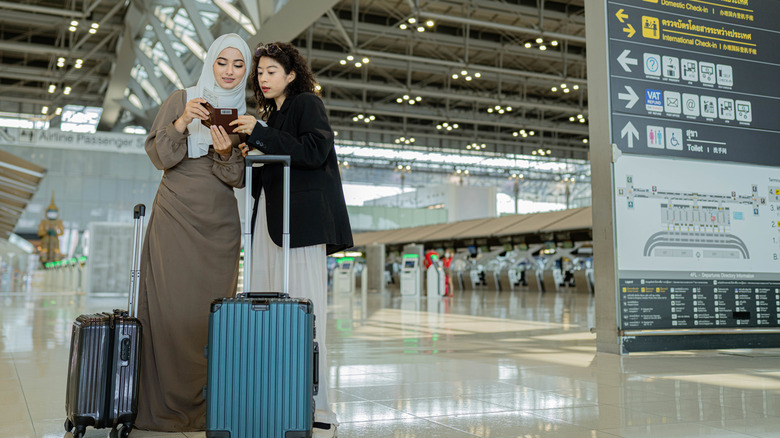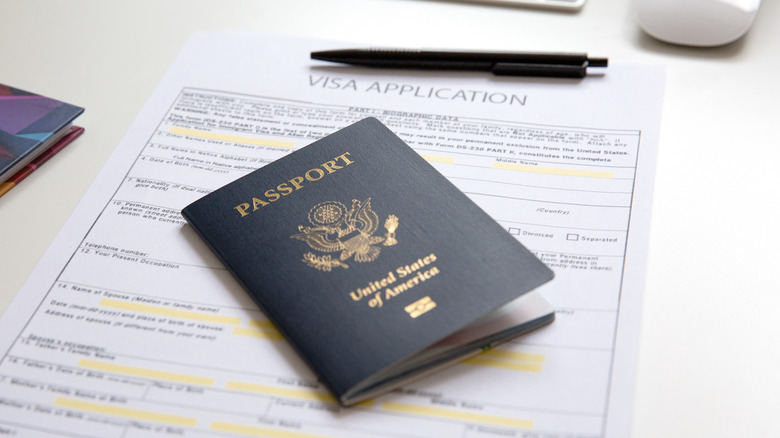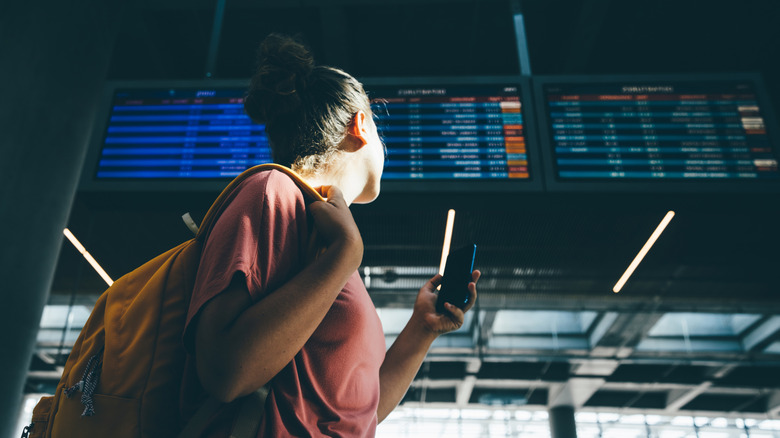What Tourists Should Know About The New 'Visa Integrity Fee' Before Visiting The US
You have your list of some of the best places to visit in the U.S., and you're already planning a trip — but wait, press the pause button. Before you book that flight or fill out your visa application, there's a new surprise that you need to be aware of: Depending on which country you're coming from, you may need to pay a new "visa integrity fee" — and it doesn't come cheap. Coming under the One Big Beautiful Bill Act, which was signed into law on July 4, 2025, this fee is applicable to anyone traveling to the U.S. with a nonimmigrant visa — including tourists, students, and short-term workers. Even if you're visiting for just a week, you'll still have to pay the fee, and there are currently no waivers or shortcuts. The only exemption is for travelers from countries that are part of the U.S. Visa Waiver Program. While the program includes more than 40 countries, mostly in Europe, it does not include Mexico, India, most of South America, Africa, or China, for starters.
Despite concerns that this new fee may further worsen the reducing tourism rate in the country, it seems the government isn't backing down. In a recent analysis involving 184 countries, the World Travel and Tourism Council (WTTC) found that the United States is the only country expected to see an enormous drop in spending from international visitors in 2025. WTTC estimated a $12.5 billion reduction – that's 22.5% — compared with 2024's figures. Yet, according to Forbes, the gap is even wider based on the country's expected growth, concluding that the U.S. may be missing out on up to $29 billion in potential tourism earnings.
The cost of the visa integrity fee and what it means for tourists
The visa integrity fee is collected when your visa is issued, and it starts at a minimum of $250 for the 2025 U.S. fiscal year, which runs from October 1, 2024, to September 30, 2025. However, the Secretary of Homeland Security has the authority to increase the fee. This means that the $250 can actually climb higher depending on future decisions. The fee will also be adjusted annually for inflation, beginning with the 2026 fiscal year. That means this cost could add up really quickly, especially for families: A group of four people would have to pay up to $1,000 just in integrity fees — and that's on top of the already existing visa application fees.
There's some sliver of hope though, because the visa integrity fee is technically refundable — provided you don't overstay for more than five days, you don't work without authorization, and you don't legally extend your status. So, if you keep to all the terms, there's a chance your money will be refunded after your visa expires. Still, that is generally hard to do, and there's no clear refund mechanism in place as of this writing. Moreover, the visa integrity fee has not been fully implemented yet, and an official implementation date hasn't been stated. The Department of Homeland Security explained in a July 22, 2025, official notice that they "are working to implement the statutory mandates as soon as practicable." In the meantime, you can learn to improve your visa approval chances here.
What you can do right now
Since there isn't much information available yet, the most important thing to do is to stay updated by checking official sources, like the U.S. Department of State, the U.S. Citizenship and Immigration Services, or even your local embassy's website. Once there's more information or guidance from the government, these platforms are definitely the go-to places to get updates. Also, it's advisable to factor this new fee into your overall travel budget. Whether you're a solo backpacker or part of a family vacation, the fees can significantly affect your plans, especially if you're traveling on a tight budget.
Importantly, you should be ready for possible delays and bumps during processing, especially since officials are still ironing out the details. Until clearer and more specific information is reeled out by the U.S. government, planning cautiously and staying informed remains essential. Finally, be sure to confirm whether you're eligible for the Visa Waiver Program, which allows citizens of certain countries (including Netherlands, France, Spain, Sweden, Hungary, Japan, and Australia) to travel to the U.S. for tourism or business without a visa, for up to 90 days. Many of these countries are also destinations where U.S. citizens can travel visa-free.


